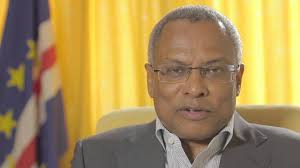José Maria Neves has won the presidential election in Cape Verde, marginally avoiding a run-off vote with his closest rival after Sunday’s vote.
Neves, a former Prime Minister won the election in the first round in the island nation cited as an example of democratic success in West Africa.
Carlos Veiga, his main opponent, conceded defeat and congratulated the newly elected president.
The leader of the African Party for the Independence of Cape Verde (PAICV) and Prime Minister from 2001 to 2016 won 51.5 percent of the vote, an absolute majority with 97 percent of the ballot counted at the time of this report.
Neves beat former Prime Minister Carlos Veiga (1991-2000), candidate of the Movement for Democracy (MFD), who polled 42.6 percent of the vote.
Incumbent president Jorge Carlos de Almeida Fonseca elected in 2011 and re-elected in 2016, withdrew as provided for in the constitution in favour of Carlos Veiga, who was finally defeated by the left, which returned to power after the departure of Pedro Pires in 2011.
The abstention rate reached 51.7 percent according to the electoral commission, which must confirm the final results in the coming hours.
However, the future president is heading for a coalition government since Veiga’s MFD, which came second in the presidential election, controls parliament.
On April 18, the archipelago of 550,000 inhabitants returned an absolute majority to Prime Minister Ulisses Correia e Silva’s (38 seats) ahead of the PAICV (30 seats) out of the 72 seats in parliament.
This means that the new president will not have much room to manoeuvre.
Cape Verde has a semi-parliamentary system that gives the Prime Minister, the government and the Parliament a large share of the power.
A former Portuguese colony that became independent in 1975, Cape Verde has seen several peaceful changes of government between the left-wing PAICV and the centre-right MFD, which have shared power for 45 years.
CD/lb/as/APA


